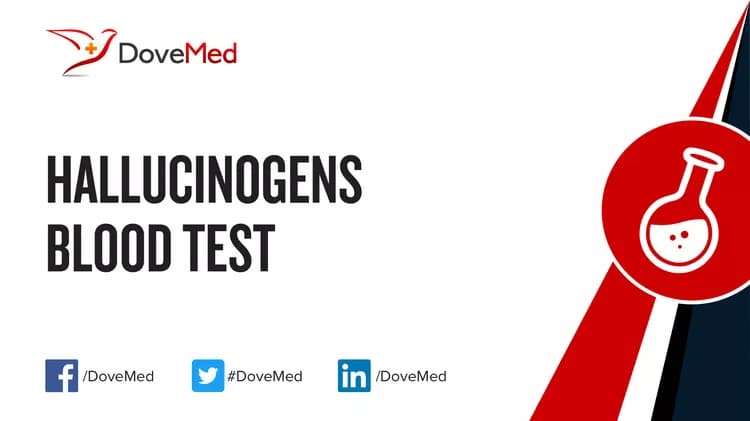What are other Names for this Test? (Equivalent Terms)
- Psychotomimetic Drugs Blood Test
What is Hallucinogens Blood Test? (Background Information)
- Hallucinogens are drugs that affect an individual’s perception of reality. The most common ones include ketamine, phencyclidine (PCP), LSD, psilocybin, peyote, and DMT
- Hallucinogens are classified as either classic hallucinogens or dissociative drugs.
- Classic hallucinogens produce euphoric effects that are accompanied by experiences unlike those of ordinary experience. Examples are LSD and psilocybin (a component of hallucinogenic mushrooms)
- Dissociative drugs produce feelings of being detached from reality and the environment around the individual. Examples are PCP and ketamine
- The mechanisms by which hallucinogens exert their effects are not fully understood. However, they are believed to work by altering the communication system between the brain and spinal cord, which is responsible for regulating moods and perceptions
- Some hallucinogens have accepted medical properties. An example is ketamine. However, most have no medical uses and are illegal to possess, such as PCP and LSD
- Unlike other drugs with hallucinogenic properties, such as marijuana and cocaine, hallucinogens cause delusions and hallucinations virtually every time they are used
- The Hallucinogens Blood Test helps detect the levels of hallucinogenic drugs in blood. It is used to investigate the cause of erratic psychological behavior, and to determine an overdose. It is also used to control the dose of the anesthetic ketamine
- Hallucinogenic drugs detected by the Hallucinogens Blood Test include:
- Ketamine
- Phencyclidine (PCP, angel dust, elephant tranquilizer, peace pill, Sherman, and T)
- LSD (“acid”)
What are the Clinical Indications for performing the Hallucinogens Blood Test?
Following are the clinical indications for performing the Hallucinogens Blood Test:
- Controlling the dose of ketamine administered for anesthesia
- Trance-like state
- Altered mental status
- Erratic behavior
- Paranoia
- Reporting voices or images that are not real
- Nausea
- Vomiting
- Chills
How is the Specimen Collected for Hallucinogens Blood Test?
Following is the specimen collection process for Hallucinogens Blood Test:
Sample required: Blood
Process of obtaining blood sample in adults:
- A band is wrapped around the arm, 3-4 inches above the collection site (superficial vein that lies within the elbow pit)
- The site is cleaned with 70% alcohol in an outward spiral, away from the zone of needle insertion
- The needle cap is removed and is held in line with the vein, pulling the skin tight
- With a small and quick thrust, the vein is penetrated using the needle
- The required amount of blood sample is collected by pulling the plunger of the syringe out slowly
- The wrap band is removed, gauze is placed on the collection site, and the needle is removed
- The blood is immediately transferred into the blood container, which has the appropriate preservative/clot activator/anti-coagulant
- The syringe and the needle are disposed into the appropriate “sharp container” for safe and hygienic disposal
Preparation required: No special preparation is needed prior to the test.
What is the Significance of the Hallucinogens Blood Test Result?
- The Hallucinogens Blood Test may be used to control the amount of ketamine administered for anesthesia. In this case, a therapeutic value is between 500 and 2000 ng/mL
- Detectable levels of any other hallucinogen indicate hallucinogen use
The laboratory test results are NOT to be interpreted as results of a "stand-alone" test. The test results have to be interpreted after correlating with suitable clinical findings and additional supplemental tests/information. Your healthcare providers will explain the meaning of your tests results, based on the overall clinical scenario.
Additional and Relevant Useful Information:
- Rates of use for LSD and several other hallucinogenic drugs have decreased as of a 2014 study
Certain medications that you may be currently taking may influence the outcome of the test. Hence, it is important to inform your healthcare provider of the complete list of medications (including any herbal supplements) you are currently taking. This will help the healthcare provider interpret your test results more accurately and avoid unnecessary chances of a misdiagnosis.
Related Articles
Test Your Knowledge
Asked by users
Related Centers
Related Specialties
Related Physicians
Related Procedures
Related Resources
Join DoveHubs
and connect with fellow professionals


0 Comments
Please log in to post a comment.